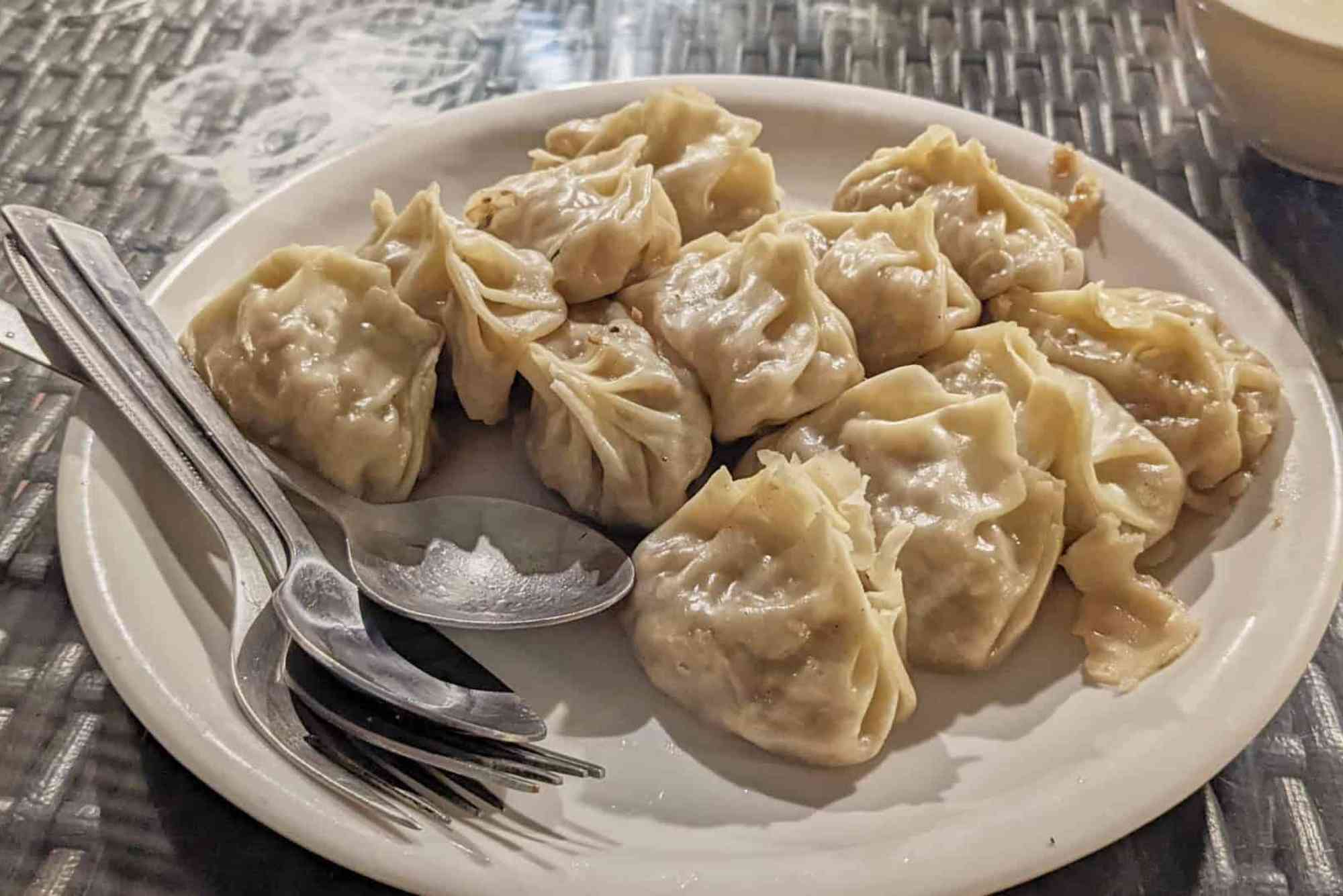Explore the Rich Flavors of Traditional Food in the UAE
The traditional food of UAE is a reflection of its deep-rooted culture, heritage, and desert lifestyle. As the country has transformed into a global hub, it continues to celebrate its culinary traditions. Emirati dishes, influenced by Bedouin customs, coastal fishing, and desert farming, are hearty, flavorful, and steeped in history. From slow-cooked meats to fragrant rice and sweet treats, the UAE’s traditional cuisine is an essential part of its identity.
A Culinary Heritage Rooted in the Desert
The traditional food of UAE originates from a time when survival in the desert meant relying on simple yet resourceful ingredients. Dates, milk, meat, rice, fish, and spices formed the core of meals. Over time, trade with India, Persia, and East Africa introduced new flavors and techniques, enriching Emirati cuisine further. Despite modern influences, many traditional recipes remain unchanged, passed down through generations.
Key Ingredients in Emirati Cuisine
The essence of Emirati cooking lies in its ingredients. These elements define the flavors and textures of traditional food in the UAE.
Dates and Camel Milk
Dates are not only a staple snack but also a natural sweetener in many dishes. Camel milk, rich in nutrients, is traditionally consumed fresh or used in desserts. Together, they symbolize hospitality and sustenance in Emirati culture.
Rice and Meat
Rice dishes are central to main meals, often accompanied by lamb, goat, or chicken. Meats are typically marinated with spices like cardamom, cinnamon, and saffron, then slow-cooked for tenderness.
Fish and Seafood
Given the UAE’s coastline, fish has always been an essential part of the diet. Grilled, fried, or cooked in stews, seafood reflects the country’s maritime heritage.
Spices and Aromatics
Emirati dishes are flavored with a unique spice mix called bezar, made from black pepper, cumin, coriander, and other warm spices. Saffron, dried lemon (loomi), turmeric, and rose water also play vital roles in enhancing taste and aroma.
Must-Try Traditional Emirati Dishes
Exploring the traditional food of UAE means sampling a variety of dishes that represent the soul of Emirati culture. These meals are often enjoyed during family gatherings, religious celebrations, and national holidays.
Harees
Harees is a simple yet comforting dish made with wheat and meat. Cooked slowly until the ingredients blend into a creamy texture, it’s a Ramadan favorite and commonly served at weddings and festivals. Its mild flavor and wholesome nature make it beloved across generations.
Majboos
Also known as machboos, this is a fragrant rice dish cooked with meat, onions, tomatoes, and a generous helping of Emirati spices. Each family has its version, often adding raisins, nuts, or even dried lemon for depth.
Thareed
Thareed is a hearty stew poured over thin, crispy bread. Often made with lamb or chicken and vegetables, it combines the richness of broth with the crunch of traditional rigag bread. It’s especially popular during Ramadan and is considered one of the Prophet Muhammad’s (PBUH) favored dishes.
Balaleet
A unique sweet-and-savory breakfast dish, balaleet features vermicelli noodles flavored with cardamom, saffron, and sugar, topped with an omelet. It’s a perfect example of the UAE’s ability to blend contrasting tastes into something harmonious.
Luqaimat
These golden, crispy dumplings are soaked in date syrup or honey and sprinkled with sesame seeds. Often served with Arabic coffee during festivities, luqaimat are a delightful dessert that showcases Emirati hospitality.
Madrooba
A thick porridge-like dish, madrooba is made with salted fish, flour, and spices. It has a rich, savory flavor and is usually enjoyed with ghee. Though it may sound simple, its taste is both satisfying and deeply traditional.
Cultural Significance of Emirati Food
The traditional food of UAE is more than just sustenance; it’s a bridge to the past and a pillar of identity. Meals are often communal, emphasizing family unity and hospitality. Elders are served first, and dishes are placed in the center for everyone to share, reflecting values of generosity and respect.
Festivals such as Ramadan, Eid, and National Day bring these culinary traditions to life. Homes are filled with the aromas of slow-cooked meat, sweet pastries, and freshly brewed gahwa (Arabic coffee). Preparing food is often a collective effort involving multiple generations, strengthening bonds and preserving heritage.
Modern Revival and Culinary Tourism
While the UAE is known for its luxury dining and international cuisine, there is a growing movement to celebrate and revive traditional foods. Restaurants, cultural festivals, and culinary tours now highlight authentic Emirati dishes. Younger chefs are experimenting with modern presentations while keeping the original flavors intact.
Visitors are increasingly drawn to food experiences that offer more than a meal — they seek a connection to the land and its people. As a result, traditional food of UAE is gaining recognition not only within the country but also on global culinary platforms.
Home-Cooked Traditions and Recipes
In Emirati households, traditional cooking is still a cherished skill, especially among older generations. Recipes are often shared orally, and each home has its secret blend of spices or cooking techniques.
Modern Emiratis continue to cook these meals, sometimes integrating healthier options or shortcuts. Still, the heart of each dish remains the same — built around family, faith, and flavor. Cooking Emirati food at home is also a way of teaching children about their roots and cultural pride.
Health Aspects and Nutritional Value
Despite being rich and flavorful, many traditional Emirati dishes are balanced and nutritious. Meals often include a combination of proteins, grains, and vegetables. The use of spices like turmeric and cinnamon adds anti-inflammatory properties. Dates provide natural sugars and fiber, while camel milk offers high levels of iron and vitamin C.
In recent years, there’s been a rise in interest toward making traditional dishes healthier — reducing oil, using organic ingredients, or baking instead of frying. This health-conscious approach allows the traditional food of UAE to be enjoyed by all generations.
A Food Experience Beyond the Plate
Food in the UAE is also an experience of storytelling, etiquette, and celebration. Offering food to a guest is seen as a blessing. Sharing a meal under a tent or on a traditional floor mat connects people to Bedouin customs and the simplicity of desert life.
The art of making Arabic coffee, roasting it, and serving it with dates, is a ritual that showcases patience, respect, and tradition. Even today, this experience remains a signature aspect of Emirati hospitality.
Taste the Tradition
Exploring the traditional food of UAE is a journey through time, culture, and community. It’s a cuisine shaped by the desert, enriched by trade, and carried forward with pride. Whether you’re tasting harees during Ramadan, enjoying balaleet for breakfast, or savoring luqaimat at a festival, each bite tells a story.
If you’ve never tried Emirati food, there’s no better time than now. Visit a traditional restaurant, join a cultural food tour, or try cooking an authentic recipe at home. You won’t just enjoy a delicious meal — you’ll experience the heart of the UAE. Ready to explore the rich flavors of the UAE? Dive into its traditional food and discover a heritage that nourishes both body and soul.
FAQs
What is the most popular traditional food in UAE?
Harees and Majboos are among the most popular traditional dishes in the UAE. They are commonly served during Ramadan and family events.
What is traditional Emirati breakfast?
A traditional Emirati breakfast may include balaleet (sweet vermicelli with egg), khameer bread, and Arabic coffee served with dates.
Is Emirati food spicy?
Emirati food is mildly spiced. It uses aromatic spices like cinnamon, cardamom, turmeric, and saffron for flavor rather than heat.
Can I find vegetarian options in traditional Emirati cuisine?
Yes, many side dishes and stews can be made vegetarian, such as vegetable thareed or lentil-based soups.
Where can I try traditional food of UAE?
You can experience authentic Emirati food at cultural restaurants, heritage villages, and during food festivals across Dubai, Abu Dhabi, and Sharjah.
What is a typical Emirati dessert?
Luqaimat is one of the most loved traditional desserts — small fried dumplings soaked in date syrup or honey, often served with coffee.
How is Emirati food different from other Middle Eastern cuisines?
While it shares similarities with Gulf and Middle Eastern cuisine, Emirati food has unique spice blends, local seafood emphasis, and dishes influenced by desert living and maritime history.
Is camel meat used in traditional UAE food?
Yes, camel meat is used in several traditional dishes, especially during festivals or large gatherings. It’s typically cooked slowly for tenderness.




